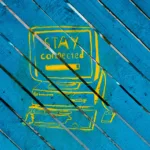Hi there, it’s Vick & Ellie! Traveling is one of the most exciting and rewarding experiences, but it can also be exhausting if you don’t take care of yourself. Long flights, packed itineraries, and time zone changes can drain your energy before you even start exploring – and it’s crucial to stay energized while traveling!
The good news? You don’t have to let fatigue ruin your trip! In this guide, we’ll share our best tips for staying energized while traveling, so you can fully enjoy every moment of your adventure without constantly feeling tired.
Why Travel Fatigue Happens
Feeling drained while traveling is more common than you might think. Long-haul flights, uncomfortable sleeping conditions, and unfamiliar environments can disrupt your routine and make it harder to stay refreshed. Whether you’re dealing with jet lag, dehydration, or a schedule that’s too packed, travel fatigue can sneak up on you fast.

Another big energy zapper? Stress. Rushing between activities, navigating foreign places, or worrying about travel logistics can take a toll on your body and mind. When your brain is constantly processing new information, it burns more energy than usual.
Luckily, with a few smart habits, you can prevent travel fatigue before it starts. By taking care of your body, managing your schedule, and making small adjustments, you can feel refreshed and ready for adventure every day of your trip.
10 Ways to Stay Energized While Traveling
1. Prioritize Sleep
Getting enough sleep is the single most important factor in staying energized while traveling. Aim for at least 7–8 hours per night, even if that means adjusting your schedule slightly. If you’re on a long flight, bring a neck pillow, eye mask, and noise-canceling headphones to improve rest.
Jet lag can also be a big problem when crossing time zones. To adjust faster, try sleeping according to your new time zone as soon as you arrive. Short naps (20–30 minutes) can help if you’re feeling sluggish, but avoid sleeping too long during the day to prevent disrupting your nighttime rest.
2. Stay Hydrated
Dehydration is one of the quickest ways to feel sluggish and fatigued. Airplane cabins, hot climates, and hours of walking can leave you feeling drained if you don’t drink enough water. Carry a reusable water bottle with you at all times and aim for at least 2 liters of water per day.
Avoid excessive caffeine or alcohol, which can contribute to dehydration and disrupt your sleep. Instead, opt for herbal teas or electrolyte drinks if you need a boost. Hydrating foods like fresh fruits and vegetables also help keep your energy levels up.
3. Eat Balanced Meals
Your body needs the right fuel to keep going. Relying on fast food or sugary snacks can cause energy crashes, leaving you feeling worse than before. Instead, focus on balanced meals that include protein, healthy fats, and complex carbohydrates.
For example, start your day with a protein-rich breakfast like eggs and whole-grain toast. Snack on nuts, yogurt, or fresh fruit instead of processed foods. Eating well helps maintain stable energy levels and keeps you feeling good throughout your travels – you’ll ensure you’re always energized while traveling!
4. Get Moving
Sitting for long periods—whether on planes, trains, or buses—can make your body feel stiff and sluggish. Simple exercises like stretching, walking, or yoga can boost circulation and keep your energy up. Even a quick 10-minute stretch in the morning can make a difference.
Try incorporating movement into your day naturally. Walk instead of taking a taxi, take the stairs instead of the elevator, or do a short workout in your hotel room. Physical activity releases endorphins, which naturally improve your mood and energy levels.
5. Take Breaks
Pushing yourself too hard will only lead to burnout. Give yourself time to rest between activities, especially if you have a jam-packed itinerary. It’s okay to slow down and enjoy the moment instead of rushing from one place to another.

We love adding “slow mornings” to our itineraries—waking up without an alarm, enjoying a coffee, and easing into the day. Downtime lets your body recharge, making your travel experience more enjoyable and less exhausting.
6. Use Natural Light to Adjust to Time Zones
Sunlight is your body’s best natural clock. If you arrive in a new time zone and feel off, spend time outside in natural light to help reset your internal clock. Exposure to daylight signals to your body when to be awake and when to rest.
If you arrive at your destination in the morning, try staying outside as much as possible instead of taking a nap indoors. At night, avoid bright screens and blue light before bed to help your body adjust faster.
7. Manage Stress Levels
Stress drains energy quickly, so finding ways to stay calm is key to maintaining energy while traveling. Meditation, deep breathing, or simply taking a moment to pause can help prevent stress from taking over. And remember to stay connected to your partner!
Travel apps like Calm or Headspace offer quick guided meditations if you need to reset your mind. Staying flexible and embracing the unexpected can also help reduce stress and keep your energy levels up.
8. Pack Light
Carrying heavy bags everywhere is physically exhausting. The less you pack, the easier it is to move around without feeling drained. Stick to versatile clothing, pack only the essentials, and use a comfortable backpack or suitcase.
Packing light also helps reduce decision fatigue—having fewer options for outfits means less time spent deciding what to wear each day. Trust us, traveling light makes the entire experience more enjoyable.
9. Listen to Your Body to Ensure You’re Energized While Traveling
Pay attention to how your body feels. If you’re exhausted, allow yourself to rest instead of forcing yourself to keep going. Travel should be enjoyable, not a race to see everything at once.
Take moments to check in with yourself throughout the day. If you feel overwhelmed or physically tired, don’t hesitate to adjust your plans. Prioritizing your well-being ensures you have the energy to enjoy your trip fully.
10. Stay Positive
Your mindset plays a huge role in how you feel. If you focus on the negative—like delays, crowded places, or minor inconveniences—you’ll feel more exhausted. Instead, shift your perspective to gratitude and excitement.
Laugh at the mishaps, embrace the unexpected, and remind yourself why you love to travel. Positivity keeps your energy high and makes the entire experience more enjoyable.
Best Travel Snacks for Sustained Energy
Choosing the right snacks while traveling can make a huge difference in keeping your energy levels stable. Processed foods and sugary snacks might provide a quick boost, but they often lead to crashes later. Instead, opt for nutrient-dense snacks that offer lasting energy, like nuts, protein bars, and dried fruits.
We always pack a mix of healthy, portable options to keep us fueled throughout long flights and road trips. Almonds, cashews, and walnuts are excellent for sustained energy, while fresh fruits like bananas and apples provide natural sugars without the crash. Greek yogurt or hummus with veggie sticks are also great choices if you have access to refrigeration.

Hydration is just as important as snacking. Dehydration can cause fatigue, so pair your snacks with plenty of water. Avoid excessive caffeine or sugary drinks, and instead opt for herbal teas or electrolyte-infused water to maintain balanced hydration levels.
How to Adjust to a New Time Zone Quickly To Ensure You’re Energized While Traveling
Jet lag can make the first few days of a trip exhausting, but adjusting to a new time zone doesn’t have to be a struggle. One of the best ways to reset your internal clock is by exposing yourself to natural light as soon as possible.
Spending time outside during daylight hours signals to your body when to be awake and helps regulate sleep patterns.
We’ve found that gradually adjusting our sleep schedule before departure makes a big difference when it comes to staying energized while traveling.
If traveling east, try going to bed an hour earlier each night leading up to your trip. If heading west, stay up slightly later to help your body adapt more smoothly. Avoiding naps during the first day in a new location also helps prevent prolonged jet lag.
Hydration and diet also play a role in adjusting faster.
Drink plenty of water, eat balanced meals, and limit caffeine and alcohol, as they can interfere with sleep quality. Establishing a bedtime routine—like reading or meditating—also helps signal to your body that it’s time to rest, even in an unfamiliar setting.
FAQ
Q: How do I maintain energy on long-haul flights?
A: Stay hydrated, move around frequently, and try to sleep according to your destination’s time zone. Bring snacks and a neck pillow to stay comfortable.
Q: What’s the best way to recover from travel exhaustion?
A: Prioritize rest, drink plenty of water, and give yourself a slow day to adjust. Light exercise, fresh air, and nutritious food can help speed up recovery.
Q: Are energy drinks helpful or harmful while traveling?
A: Energy drinks provide a short-term boost but often lead to crashes later. Natural energy sources like water, fruit, and stretching are better for sustained energy.
Traveling should leave you feeling inspired, not exhausted. By following these tips, you’ll have the energy to fully enjoy every destination and create unforgettable memories.
Have any tips for staying energized while traveling? Share them with us in the comments—we’d love to hear your thoughts!
Safe travels and happy exploring,
Vick & Ellie





